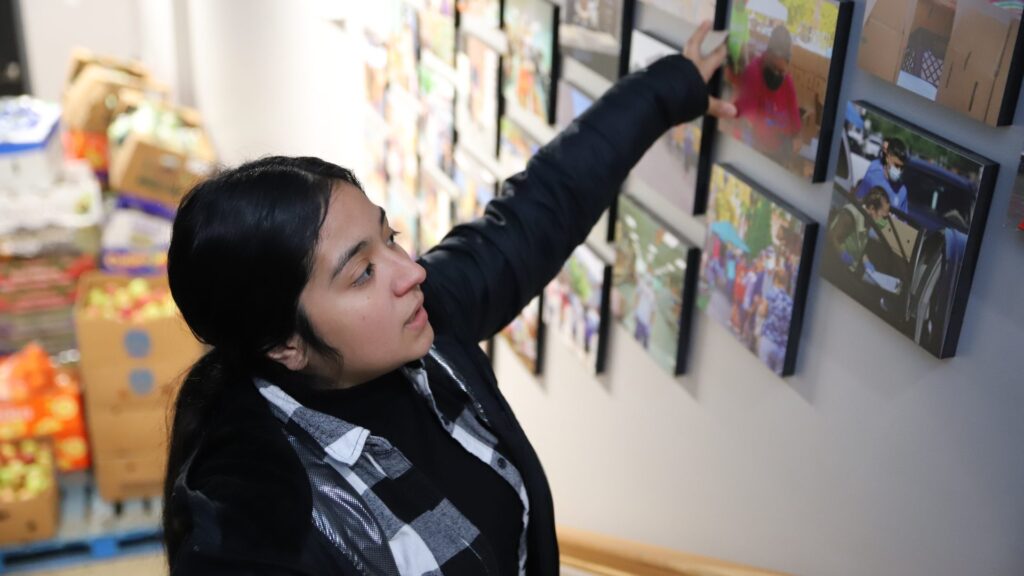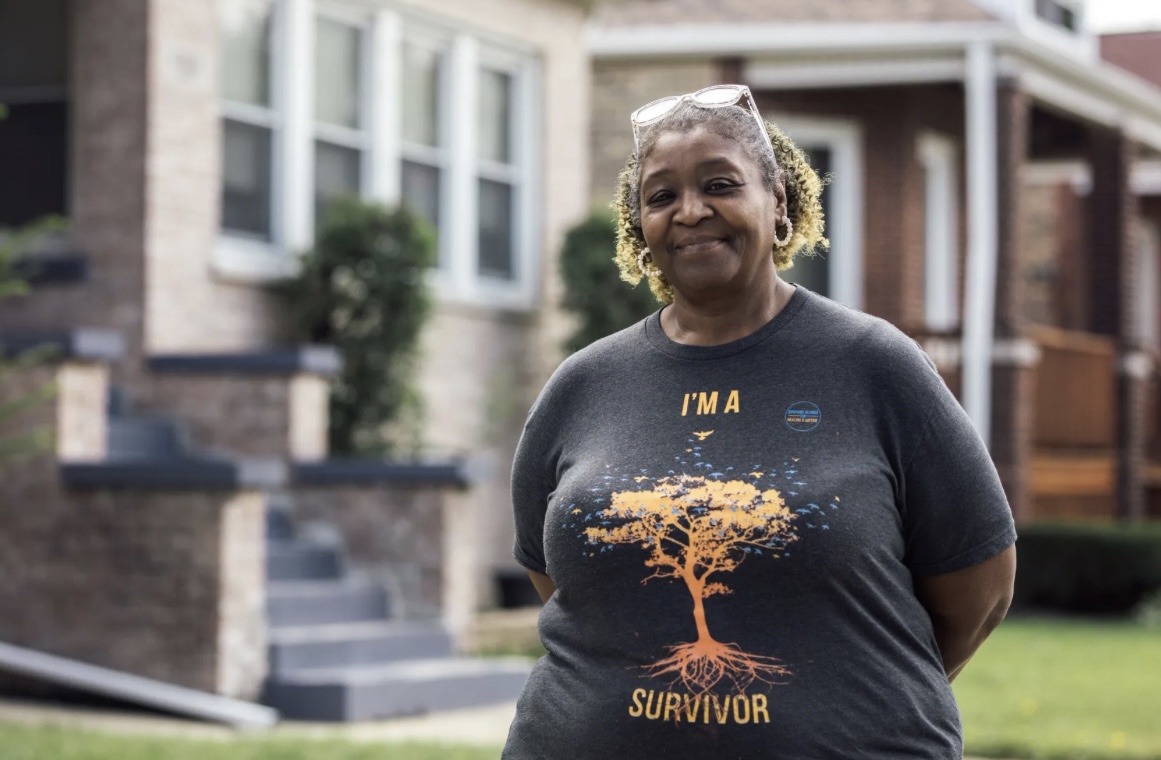Pan de Vida Fresh Market, a food pantry in Little Village, has played a crucial role in providing food to its neighbors since 2010. However, they are now running out of food as they see an increase in community need with newly arrived migrants coming to the area.
Four days a week, the pantry serves 250 people with food and other supplies like toiletry items. In the last few months, they have almost doubled the amount of people they serve per day.
New Life Centers, under which Pan de Vida operates, are helping to house migrants living in shelters and providing families with food through a new program called New Vecinos.
When guests walk into the food pantry, they are greeted with the sound of music and the colorful sight of fresh fruits, vegetables and flowers.
It looks like any other fresh market.
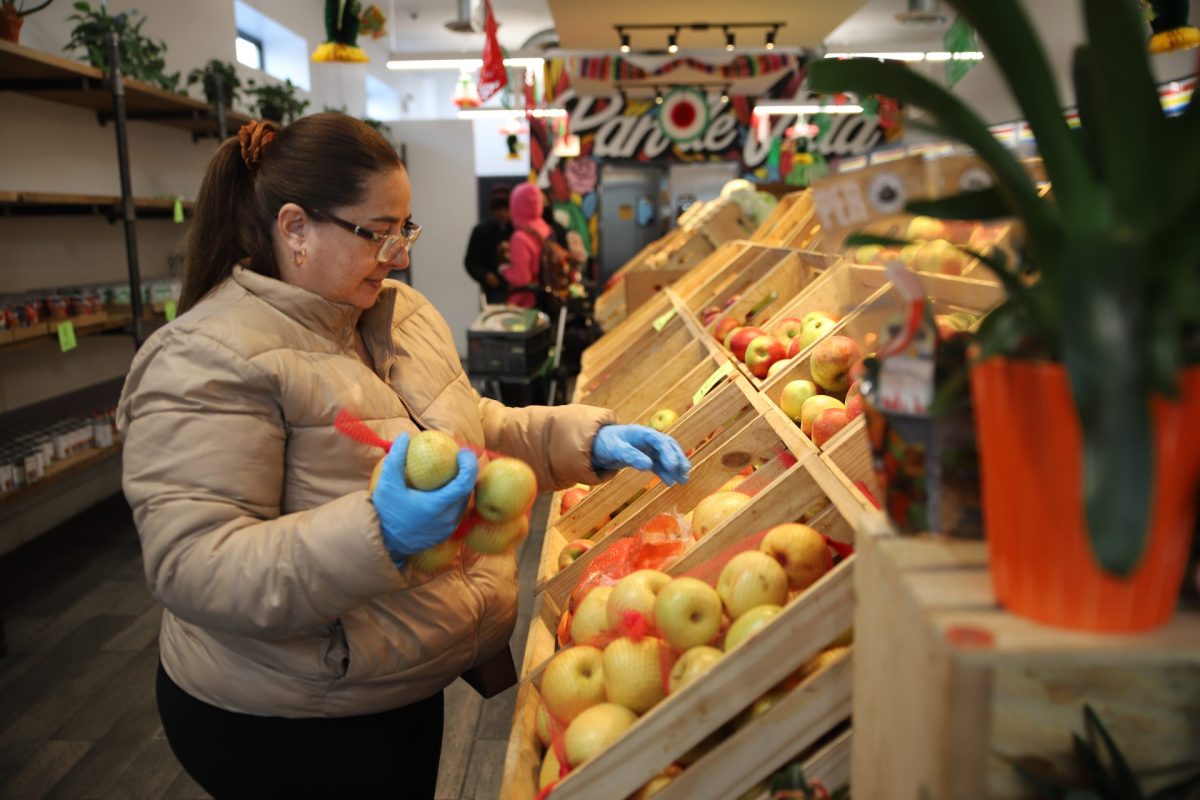
“This is the only kind of food pantry that there is out there that brings dignity, that brings, like, ‘I’m happy to be here and I have the right to be here to get free food,’” said Diana Franco, the food pantry’s coordinator.
Franco said the pantry is greatly needed in the community.
In July, Pan de Vida’s purpose was taken to a new level, becoming vital to serving the new migrants that have arrived in the city, mostly from Venezuela and other Latin American countries. They do this all while still balancing the needs of residents in the neighborhood.
Though they have managed to stay afloat through the last few months, leaders of the pantry said they are struggling to continue to feed low-income families and the new migrants who desperately search for fresh food.
“We are running out of food,” Franco said. “We sometimes don’t have enough food for our own community members because we’ve run out of it.”
Franco said they have had weeks where food donated by other grocery stores has helped them restock. However, there are some weeks where they run out very quickly.
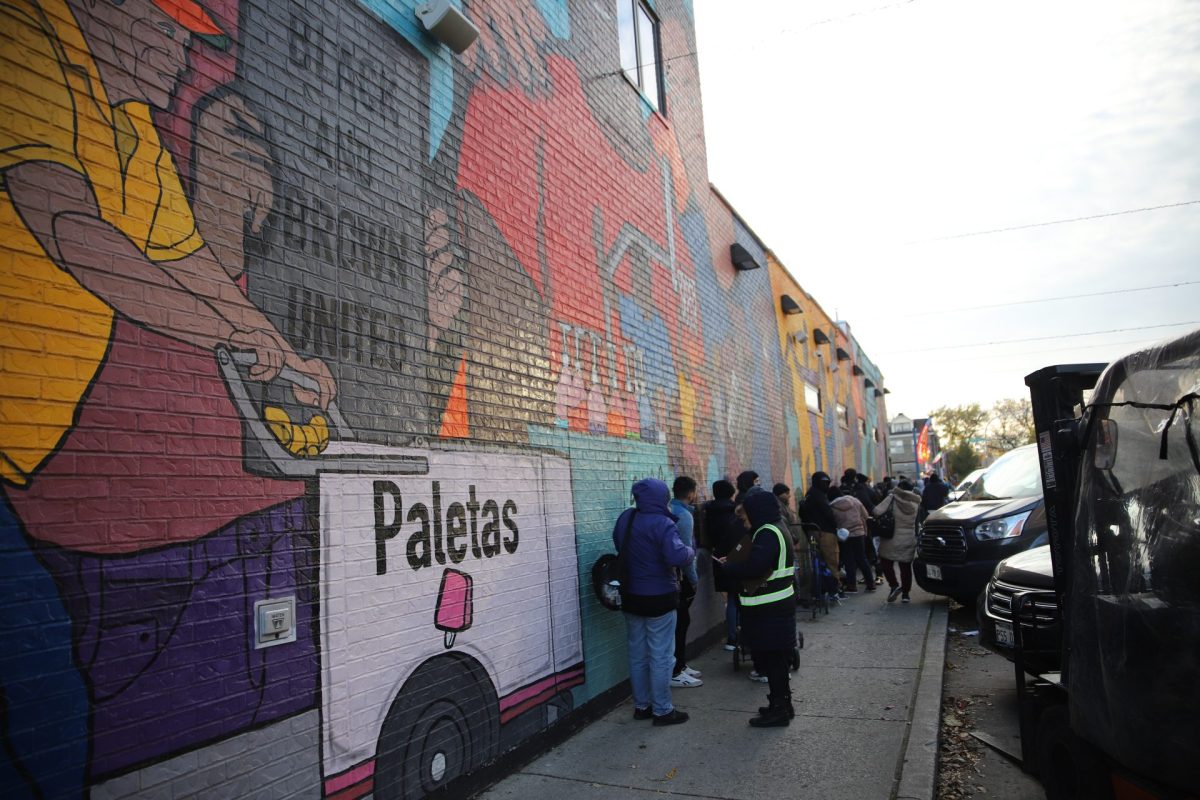
Pan de Vida is now serving 100 more people every day than their previous average of 150 before July. This is because of an increase in clients and a change in the amount of food that many people living in shelters are able to take with them.
Franco said that the only reason the numbers have not staggered is because migrants living in shelters are able to bring limited types and amounts of food with them. While residents take about 10 bags, migrants typically take only three bags of food.
Most fill their bags with canned goods and non-perishable items because of the limited space in city-run shelters.
Many times, migrant children enter the store looking for snacks and when they see the fresh fruits on stands, they immediately start to eat them, Franco said.
“The need is huge right now,” Franco said.
Earlier this year, Pan de Vida had already seen an upsurge of customers because the Supplemental Nutrition Assistance Program (SNAP) allotments, provided during the COVID-19 pandemic, ended in March, Franco said.
While Franco said they were able to manage that surge, during the summer, they saw a new increase in clientele in July with the beginning of New Vecinos.
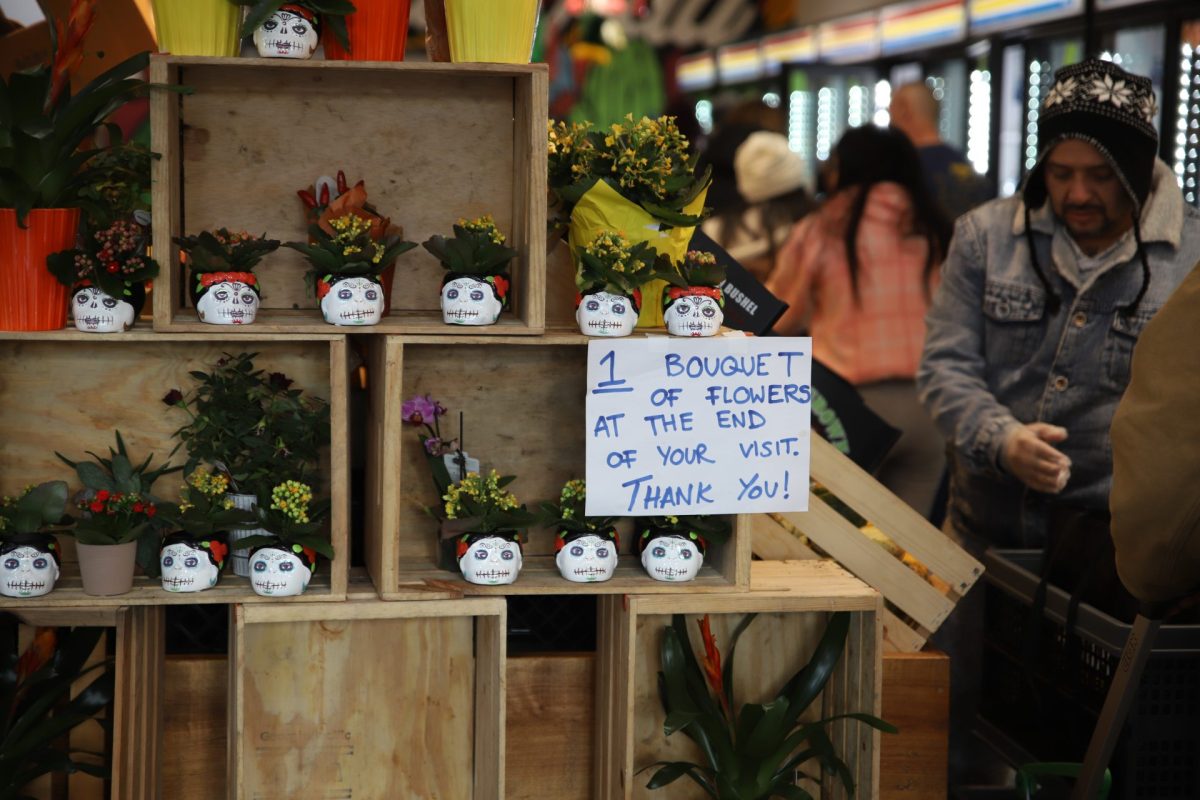
“Little Village is an area built by immigrants, still run by immigrants. We also are faith based, so we are called to love on people,” said Joana Dyckman, a community leader with New Vecinos.
As people walk through the U-bend grocery store, they are able to grab fresh apples, meats, eggs and vegetables from the stocked stands around the store. At the front, people grab fresh flowers that Trader Joe’s donates occasionally, and in the back of the store, people can grab toiletry items.
“Our main focus, I mean, it’s to try and help out the food insecurity, but this opens doors to more things, to more doors that these people need help,” Franco said.
Franco said that she would like to see more funds from the city to support the work New Life Centers are doing. She said she is also worried that the new shelter that recently opened at an old CVS site, located at 2634 S. Pulaski Rd., near Pan de Vida will bring even more people to the pantry.
La DePaulia spoke with Ald. Michael Rodriguez (22nd), whose ward includes the food pantry. Rodriguez is one of the leaders in city council tasked with allocating resources to migrant families in the city.
“I don’t have the power to take private dollars or philanthropy dollars and put them places,” Rodriguez said. “I can certainly suggest and highlight good things going on, and Pan de Vida is definitely one of them.”
Though he supports expanding access to food pantries across neighborhoods, Rodriguez said there remains “no timeline” in place to do so.
As Pan de Vida leaders remain hopeful for more funds from the city and donors, Franco said that she hopes long-time residents remain patient while they help support the new migrants integrating into the neighborhood.
“Little village is a space where migrants can come, they are welcome, and they will feel welcome,” Franco said. “It’s a space where you won’t be afraid that other people are going to come in and take you away from here. I mean, it’s not their culture, but we can [in] some type of way, understand what they’re going through.”
Despite their worry to provide food to those in need, many celebrate the role that New Life Centers has had in helping their new neighbors settle in place.
The city hired the New Life Centers to help resettle migrant families living in shelters through New Vecinos. Since starting in May, the organization has been able to help 2,180 families and 8,950 individuals since January 2024.
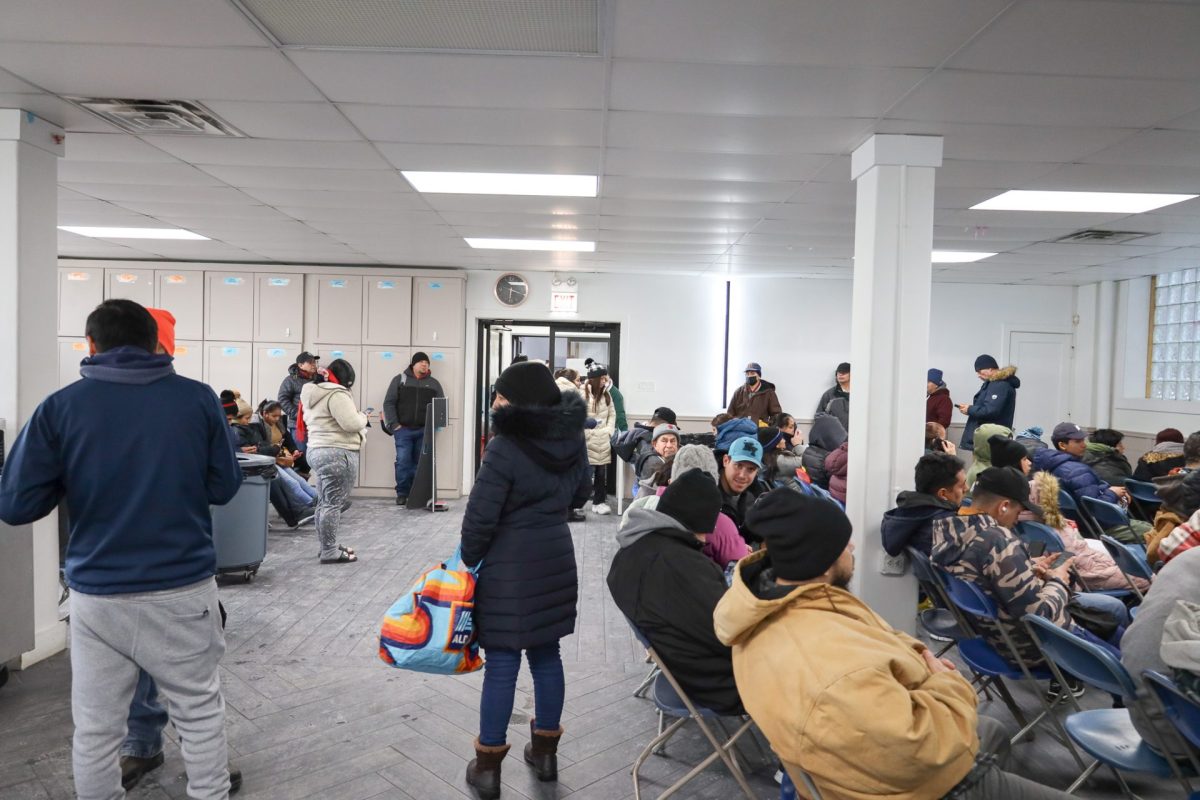

New Vecinos partners with Chicago Furniture Bank to buy furniture and furnish apartments that new migrants rent through the city and state rental assistance program.
With $500, New Vecinos finds new and used furniture to help families start a new life.
“The city and state are doing everything they can with little resources and with this huge, massive human crisis that happened,” Dyckman said. “We’re one of the few cities that are allowing people to come in so I think people need to, or audiences need to know that the city and state are doing a lot.”
At New Life Centers, migrants are also able to come to the center at 2657 S Lawndale Ave. to stay warm, eat and receive access to different resources. The center also provides diapers, baby formula, toys, school supplies and jackets.
New Vecinos was only supposed to last one month but has now been extended until June 2024, Dyckman said.
How to donate and volunteer: You can learn more about how to donate and get involved with New Vecinos through their website.
Publisher’s Notes: ‘We are running out of food’: Food pantry in Little Village struggles to balance needs of neighbors and new migrants was first published on The DePaulia.
Illinois Latino News (ILLN) and La DePaulia are partners in best serving the Hispanic-Latino community.
